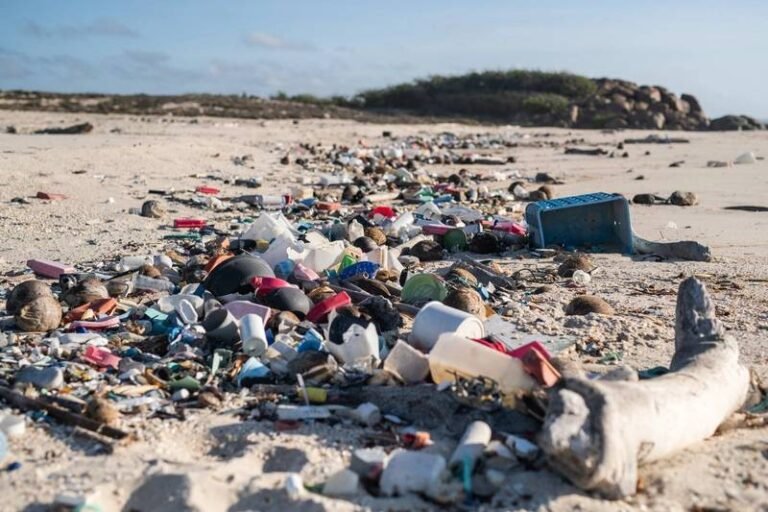The Australian Government Urged to Push for Strong Global Plastics Treaty
The second part of the fifth session of the Intergovernmental Negotiating Committee (INC-5.2) is scheduled to take place at the Palais des Nations in Geneva, Switzerland, from August 5 to 14.
This second session will focus on finalizing an international legally binding instrument on plastic pollution. The treaty will address various aspects of plastic pollution, including production, design, trade, waste management, and a just transition. It will also address financial, technical, and capacity-building aspects.
In the leadup, 31 First Nations and environmental groups have called on the Australian Government to continue pushing for a robust and ambitious treaty.
Plastic Pollution in Australia
Plastic pollution affects many parts of Australia’s coastline:
- Nationally, plastics make up 81% of all litter collected by Clean Up Australia volunteers.
- In Northern Australia, the prevalence of ghost fishing gear is increasing, with ghost nets harming marine life.
- In New South Wales, microplastics are abundant in Sydney Harbour and seabird chicks on Lord Howe Island are consuming plastic.
- In Victoria, significant amounts of rubbish are being collected from beaches.
- In Western Australia, tons of rubbish are being removed from beaches.
- In Queensland, a high percentage of green sea turtles have ingested plastic.
- In South Australia, microplastics have been found in seafood.
- In Tasmania, high levels of microplastics have been detected in the waters.
- In remote areas like Torres Strait and Cocos (Keeling) Islands, pristine beaches are being buried under plastic pollution.
Recycling alone will not solve the plastic pollution crisis. The only viable solution is a strong and enforceable Global Plastics Treaty.
Call for Action
Australian Marine Conservation Society Plastics Campaign Manager Cip Hamilton emphasized the urgent need for action: “It’s shocking to see this horrific plastic pollution inundating remote Australian beaches. Without global action, plastic production is projected to triple by 2060, exacerbating the pollution crisis.”
The call for a strong treaty is supported by various organizations, including the Australian Marine Conservation Society, Sea Shepherd, WWF-Australia, and Greenpeace Australia Pacific.
Australia must use all diplomatic means to finalize a strong, legally binding plastics treaty at the upcoming international negotiations.

